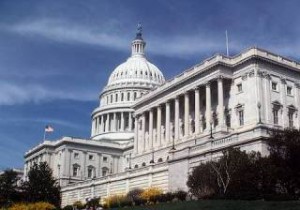How the Finance Bill Affects You
Posted on: May 22nd, 2010 by Amy Bolger There are some tantalizing possibilities that the financial overhaul bill could mean for you. Merchants may decide to offer more discounts to people who pay cash. You could also get a free credit score every time a lender or landlord penalizes you with a lousy interest rate or rejects your application because your score is not up to par. Many mortgage prepayment penalties would also go away.
There are some tantalizing possibilities that the financial overhaul bill could mean for you. Merchants may decide to offer more discounts to people who pay cash. You could also get a free credit score every time a lender or landlord penalizes you with a lousy interest rate or rejects your application because your score is not up to par. Many mortgage prepayment penalties would also go away.
A possible problem for consumers is that a last-minute Senate addition could lower the fees that merchants pay to process debit card transactions. This could mean that banks will lose revenue and they may try to make up for it by adding fees to checking accounts or cutting back on rewards programs. Retailers say that once card costs fall, they will hire more workers and hold the line on prices.
None of this will be clear until there is a final bill. It may take years to determine if this bill will actually put money in your pocket or keep your wallet from being taken advantage of. But the basic outline is clear, so here are the areas to watch as a final bill emerges:
Debit and Credit Cards – I’m sure you have seen the signs that prohibit credit card use unless you are spending a specified minimum at many establishments. It might surprise you to know that these signs are actually not allowed. But, the new bill would allow such minimums. Stores would also be able to offer discounts based on what card a customer was using. The bill also specifies that cash discounts are acceptable, as are lower prices for people who use debit cards.
Mortgages – First, mortgage lenders would face restrictions on when they can charge borrowers a penalty for paying off their loan before the term of the mortgage is up. They wouldn’t be able to charge pre-payment penalties at all for mortgages that have balloon payments or for those that allow people to make low enough payments that the mortgage balance rises instead of falls. For more standard plain vanilla mortgages, pre-payment penalties would only be allowed in the first three years. Second, the bill forbids anyone who sets up mortgages for customers from accepting compensation that would vary depending on the loan type. And finally, the bill requires banks to consider applicants’ income, assets and credit history before making a loan.
Credit Score Availability – If you have any sort of adverse action taken against you, such as not getting the apartment you wanted, not getting a loan, or even not getting the best interest rate on a credit card, the person who took the adverse action will now be required to give you your score at no cost.


